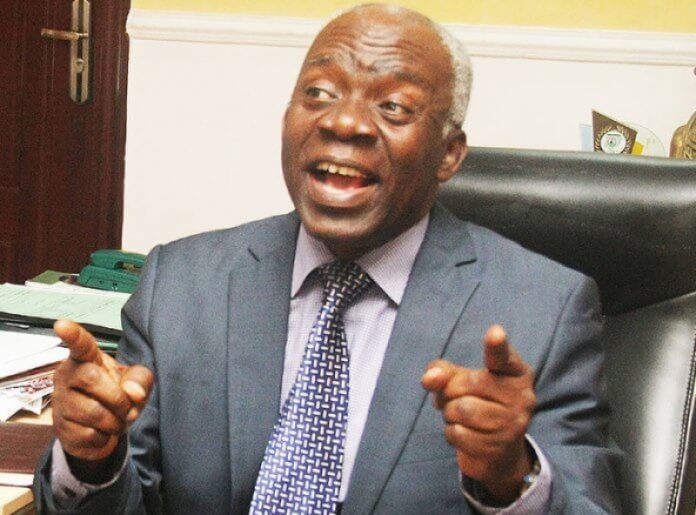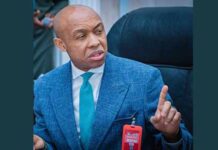Even though the Government of Nigeria ratified Minimum Wage-Fixing Machinery Convention 1928 (No. 26) in 1961 Protection of Wages Convention, 1949 (No. 95) in 1960.Convention 26 seek to protect workers’ freedom to dispose of their wages by ensuring non-compulsion on how, where, and when such wages are expended and also protect and promote the periodicity of payment of wages whilst Convention 95 seeks to impose a duty on member state to fix a minimum wage in order to promote social justice and guarantee the non-exploitation of workers’ wages.
The purpose of the law of fixing a national minimum wage is to ensure that no employer of labour is allowed to pay starvation wages to workers. Contrary to the position of the Nigeria Governors Forum and some senior lawyers, it is not against any of the tenets of federalism to prescribe a uniform national minimum wage for workers in the country. A state legislature lacks the power to prescribe a Minimum Wage for workers in the public service of any state in Nigeria. Item 34 in the Exclusive Legislative List provides for “labour, including trade unions, industrial relations; conditions, safety and welfare of labour; industrial disputes; prescribing a national minimum wage for the Federation or any part thereof; and industrial arbitration.” Accordingly, by virtue of section 4 of the Constitution, the National Assembly is empowered to prescribe a National Minimum Wage for workers in the public and private sectors in Nigeria.
Since labour and trade unions are in the exclusive legislative list the National Assembly enacted the Labour Act, Trade Union Act, Factoris Act, Employees Compensation Act etc. These laws enacted by the National Assembly are applicable throughout the country in spite of the so called federal status of the country. Notwithstanding that Nigeria is a capitalist country, section 16(2)(d) of the Constitution provides that the Nigerian State shall direct its policy towards ensuring that “suitable and adequate shelter, suitable and adequate food, reasonable national minimum living wage, old age care and pensions, and unemployment, sick benefits and welfare of the disabled are provided for all citizens.”
While the section and other provisions of the fundamental objectives and directive principles of state policy embodied in chapter two of the Constitution have been made not enforceable by the ruling class the National Assembly has been compelled to enact the Pension Reforms Act 2014, National Housing Act, Federal Mortgage Bank Act etc. Between 1981 and 2019, the National Assembly enacted four National Minimum Wage Acts to reflect the living conditions in the country. In line with the provisions of the Minimum Wage Act 2019, the Tripartite Committee of social partners to negotiate he new minimum wage. The social partners are government (all tiers), organised private employers and labour centers. So, the new minimum wage will be an agreement reached by the entire members of the Tripartite Committee including state governors.
Once the proposal is enacted into law the National Minimum Wage Act 2025 will be binding on all employers except those who are excluded from the provisions of the law. In the case of Oyo State Government v Alhaji Apampa & Ors (2008) NLLR Pt 29) 284 the National Industrial Court held that that: “The national minimum wage act 2002 in section 1 provides for minimum wage of N5,000 for the country subject to the exemption in section 2, it prohibits the payment of wages below the national minimum wage of N5,500 per month. It does not bar the payment of wage above the national minimum. Section 1(2) of the Act provides any agreement for the payment of wages less than the national minimum wage as prescribed shall be void and of no effect. This means that in paying N5,175 as minimum wage, the applicant is already in violation of the law.”
Similarly, in the case of Attorney General, Osun State v Nigeria Labour Congress (Osun State Council) ors (https://nicn.gov.ng/view-judgment/422), the National Industrial Court held that an employer is free to agree with its workers for the payment of more than N18,000 as minimum wage or to agree there be an automatic and corresponding increase of wages across all grade levels after the minimum wage has been set. According to the trial judge, had this tosay: “The National Minimum Wage Act only sets out the minimum benchmark of wages that those it defined as entitled beneficiaries cannot be made to earn anything lower. See section 1(2) of the National minimum Wage Act 2004. So when in Annex 1 (the agreement of 9th September 2011) the minimum wage was put at N19,012.95, the requirement of the National Minimum Wage Act as amended in 2011 was met; and I so hold. But the National Minimum Wage Act does not foreclose an increase over and above the minimum benchmark.”
It is submitted that once the law is enacted employers of labour including state governments are bound by its provisions. It is pertinent to note that a state government or a private employer may pay more but is not permitted pay less than the minimum wage stipulated in the National Minimum Wage Act. For instance, the payment of minimum wage of N70,000 by the Lagos and Edo state governments is legally justified even though the national minimum wage fixed by the National Minimum Wage Act 2019, is N30,000.
Finally, there is no state government that cannot pay a new national minimum wage if the concept is well understood. Apparently, governors believe that a new minimum wage will lead to a general salary review. It ought to be pointed out that the aim of the Minimum Wage Act is to bridge the gap in the wages of the lowly paid workers and top public officers. Therefore, the percentage of the increase of salaries arising from the new minimum wage cannot be the same for all public officers, including permanent secretaries. All that is required is for governnors to cut down waste and confront the menace of official corruption. In the Punch newspaper edition of 5th June 2024, it was reported that no fewer than 30 state governments of the federation spent N986.64bn on recurrent expenditures, including refreshments, sitting allowances, travelling, utilities, etc, in the first three months of 2024. A breakdown of the expenditure showed that the 30-state government spent N5.1bn on refreshments for guests, N4.67bn on sitting allowances to government officials, N34.63bn on local and foreign travel expenses, and N5.64bn on utility bills, amounting to N50.02bn in the first three months of 2024.










